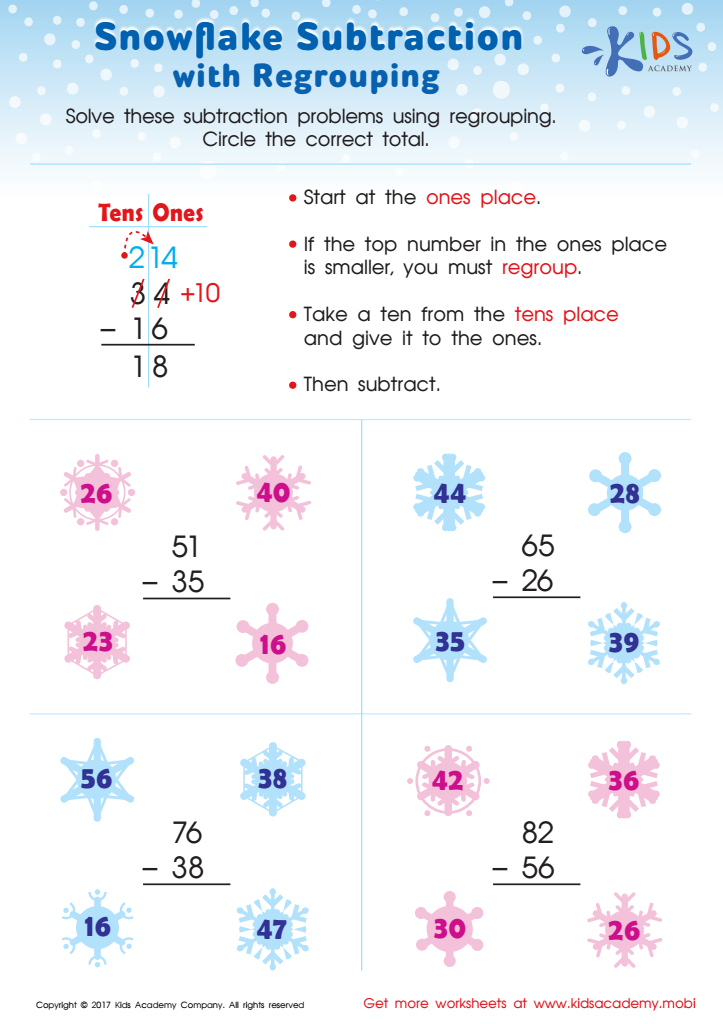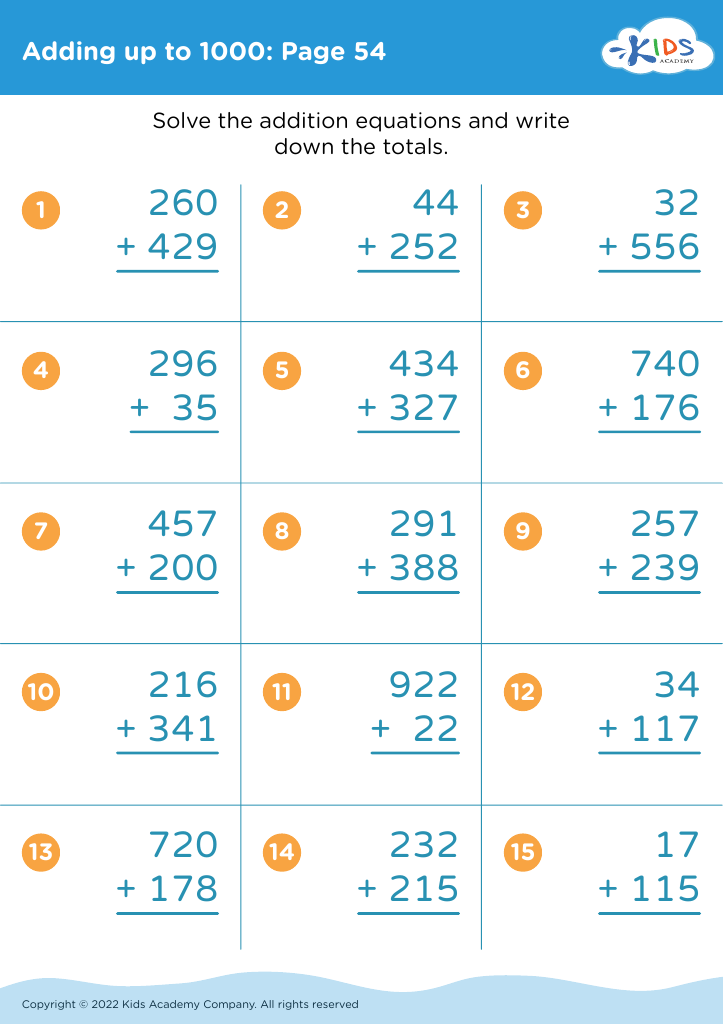Practice subtraction Math Worksheets for Ages 6-7
6 filtered results
-
From - To
Discover our engaging Practice Subtraction Math Worksheets tailored for children ages 6-7! Designed to make learning fun, these worksheets provide ample opportunities for students to develop their subtraction skills through a variety of interactive activities. With colorful illustrations and age-appropriate exercises, kids will enjoy practicing essential math concepts while building confidence in their problem-solving abilities. From simple subtraction problems to more challenging word problems, our resources cater to different learning styles. Ideal for at-home practice or classroom use, our subtraction worksheets will help young learners grasp fundamental math skills that set the foundation for future success. Start subtracting with joy today!


Subtraction With Regrouping Worksheet: Snowflake
Parents and teachers should prioritize practicing subtraction for children aged 6-7 because it lays the foundation for essential mathematical skills. At this age, children are transitioning from understanding basic concepts to more complex problem-solving. Subtraction is not merely a mathematical operation; it's a vital life skill that helps children learn about values and comparisons.
When children practice subtraction, they enhance their numeracy skills and develop critical thinking. It encourages them to visualize problems, understand quantity relationships, and build a sense of confidence in their capabilities. Furthermore, regular practice aids in cognitive development, as it promotes logical reasoning and memory retention.
Additionally, mastering subtraction supports future learning in mathematics. As children advance, they will encounter more complex operations, including addition, multiplication, and division, all of which rely on a solid understanding of subtraction. Through engaging activities like games and interactive lessons, teachers can create a fun and effective learning environment.
Finally, parents and educators working together to support subtraction practice fosters a positive attitude towards math. When kids grasp subtraction, they develop perseverance and problem-solving skills, which are critical not only in academics but in everyday life.
 Assign to My Students
Assign to My Students


























